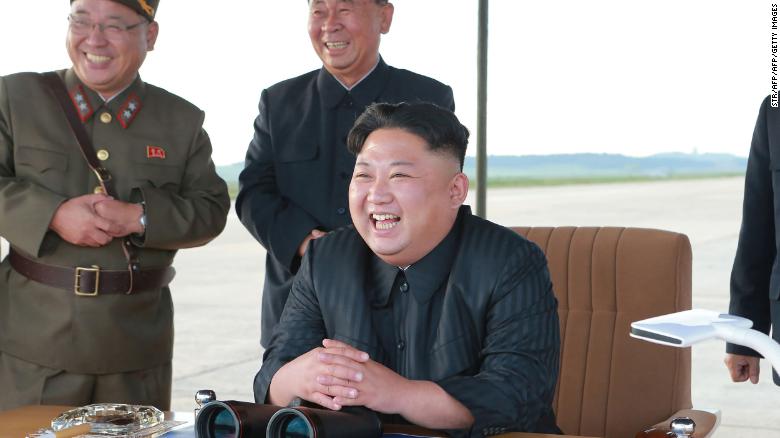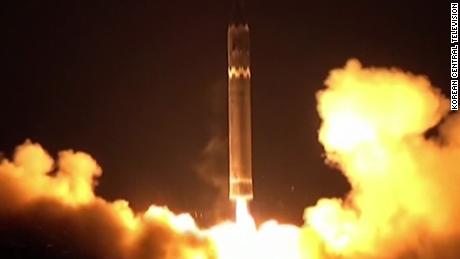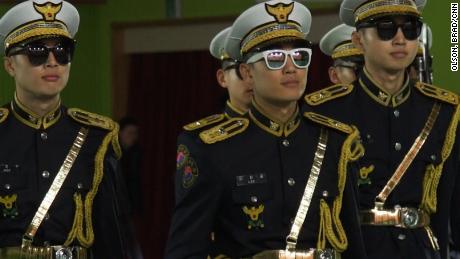Seoul, South Korea (CNN)North Korea is planning to show off dozens of long-range missiles at a February 8 parade, the day before the Winter Olympics is set to begin in South Korea, two diplomatic sources with deep knowledge of North Korea's intentions told CNN Wednesday.
The display of "hundreds" of missiles and rockets would be an attempt "to scare the hell out of the Americans," one of the sources said.
The parade is expected to include dozens of intercontinental-range Hwasong-15 missiles, which the North Koreans test-fired for the first time in late November, the sources said.
They also didn't rule out a missile test "in the near future" to send a strong message to American forces currently deployed in the region.
The news comes after US President Donald Trump delivered his first State of the Union speech, during which he criticized the Kim Jong Un regime's human rights abuses and "reckless pursuit" of nuclear weapons and ballistic missiles that could soon threaten the US homeland.
In his address, Trump highlighted personal stories of victims of the Kim regime, inviting as guests North Korean defector Ji Seong-ho and the parents of Otto Warmbier, who died shortly after returning from North Korea where he spent 17 months in captivity.
Winter Olympics woes
The inter-Korean talks which led to the North's decision to participate in the Winter OIympics had been hailed as a breakthrough that could ease escalating tensions on the Korean Peninsula. However, the process has not been smooth.
On Monday, North Korea said it canceled a joint cultural performance that was to be held in advance of the Olympics in response to unflattering coverage by South Korean media.
According to a statement from South Korea's Unification Ministry, the North Koreans pulled out because "South Korean media continue to insult North Korea's genuine measures regarding the PyeongChang Olympics and take issues with its domestic festival."
The sources that spoke to CNN said that other planned events could be canceled.
Cracks
Chad O'Carroll, managing director of the Korea Risk Group in Seoul, said the planned military parade could undermine Washington's support of dialogue between the two Koreas.
"The ongoing US support for inter-Korean rapprochement already appears to be showing cracks and will likely be seriously tested in the event of a major DPRK ICBM parade on the eve of the Olympics," he said.
Foreign media will be banned from covering the upcoming military parade, the sources said.
This is a dramatic change from last year, when many global news organizations were invited to cover a military parade in April that saw Pyongyang unveil new long-range missiles. A diplomatic source said this was due to the sensitivity of the weapons that will be on display, and to avoid questions about the deploy ability of the missiles. By banning foreign press, North Korea controls all of the imagery the world sees.
North Korean state media in recent days has been increasing its anti-US rhetoric, warning of grave consequences if postponed joint military exercises resume after the Olympics.
Policy divisions
Earlier Tuesday, sources told CNN that the Trump administration had decided not to nominate Victor Cha, its widely rumored selection as US ambassador to South Korea, apparently because of a difference over Korea policy, specifically over its consideration of a pre-emptive strike.
Cha, a widely respected former academic and former Bush administration official, said in a Washington Post op-ed Monday that the answer to the "real and unprecedented threats" North Korea presents is not, "as some Trump administration officials have suggested, a preventive military strike."
Instead, Cha laid out what he called "a forceful military option available that can address the threat without escalating into a war that would likely kill tens, if not hundreds, of thousands of Americans."








